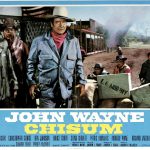The Breakfast Club (1985)
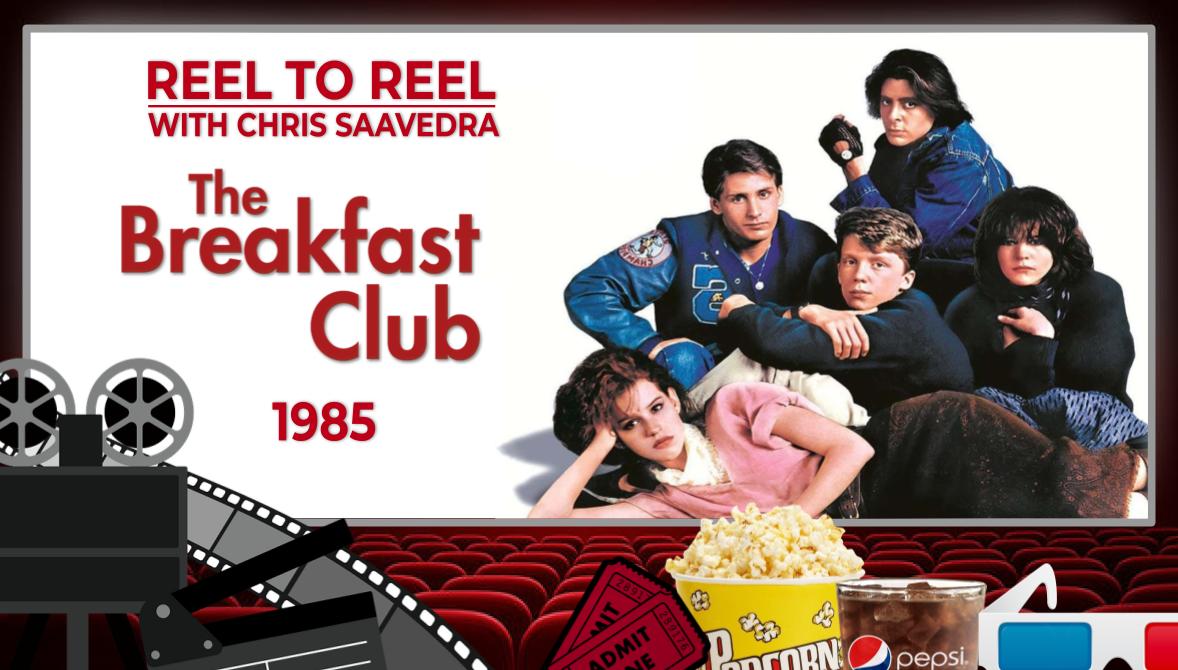
The Breakfast Club (1985), written, directed, and produced by John Hughes, is a classic teen comedy-drama that explores the complexities of adolescence and the social pressures faced by high school students. Set in a high school on a Saturday morning, the film brings together five very different students, each from a distinct social group, who find themselves serving detention together. Despite their differences, they soon realize they have more in common than they initially thought, leading to personal revelations and the breakdown of stereotypes. With memorable performances and sharp dialogue, The Breakfast Club has become an iconic film that captures the struggles and emotions of being a teenager.
The film opens with the arrival of five students at Shermer High School for Saturday detention. The group includes Claire (Molly Ringwald), the popular “princess”; John (Judd Nelson), the rebellious “criminal”; Andrew (Emilio Estevez), the star athlete; Brian (Anthony Michael Hall), the shy, nerdy “brain”; and Allison (Ally Sheedy), the quiet and mysterious “basket case”. At first, the students are reluctant to interact with each other, adhering to the social labels they’ve been given at school. However, as the day goes on, they begin to open up, sharing personal stories and frustrations that reflect the pressures they face in their everyday lives.
One of the film’s key themes is the exploration of stereotypes and how they shape the way people perceive each other. Each of the five students is initially defined by their social group, but as they spend time together, they begin to challenge these labels. Through conversations and confrontations, they realize that they all have struggles and insecurities, and that these surface-level categories are not an accurate representation of who they truly are. Hughes uses this theme to highlight the importance of looking beyond labels and understanding the shared experiences that connect us all, regardless of our social standing.
The performances in The Breakfast Club are one of the reasons the film has remained so impactful over the years. Each actor brings a unique and memorable energy to their role. Molly Ringwald’s portrayal of Claire, the popular girl, is layered and vulnerable, showing that even those who seem to have it all can feel isolated and misunderstood. Judd Nelson’s John, the defiant troublemaker, is charismatic yet complex, embodying the frustration of a teenager who feels like an outsider. Anthony Michael Hall’s Brian, the “nerd,” offers a sensitive portrayal of a student under the weight of academic and social pressure. Ally Sheedy’s Allison, the mysterious girl, provides an enigmatic presence that adds depth to the film. Emilio Estevez’s Andrew, the athlete, brings emotional vulnerability to his role as a young man struggling with the expectations placed on him.
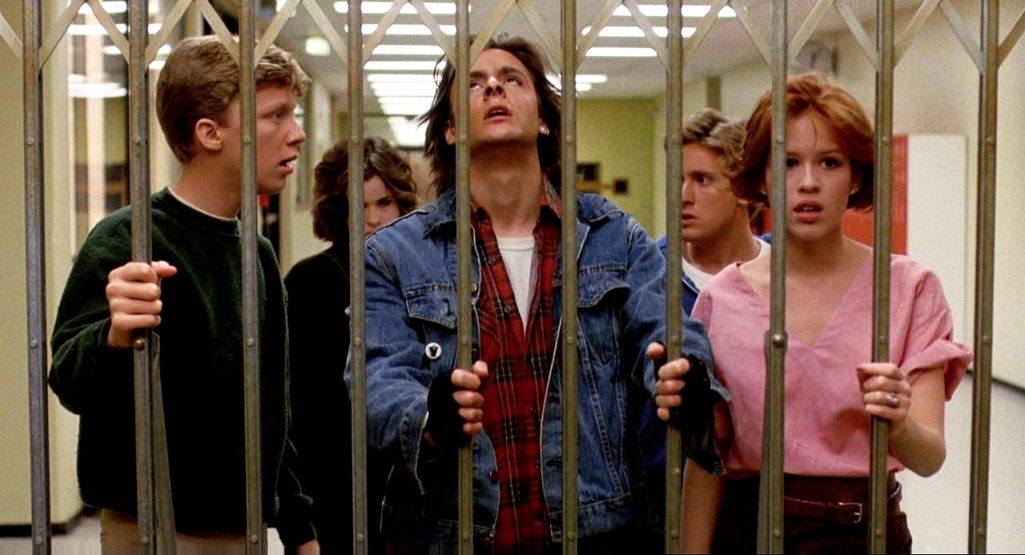
Another significant aspect of the film is the role of the adult authority figure, the detention supervisor, played by Paul Gleason. Mr. Vernon is a self-absorbed, authoritarian figure who represents the adult world’s dismissive attitude toward the emotional struggles of teenagers. Throughout the film, he serves as a foil to the students’ experiences, creating a contrast between the oppressive school system and the personal growth that takes place when the students begin to connect with each other. His character is emblematic of the generational divide that exists between adults and teens, reinforcing the film’s central message that young people’s emotions and challenges deserve to be taken seriously.
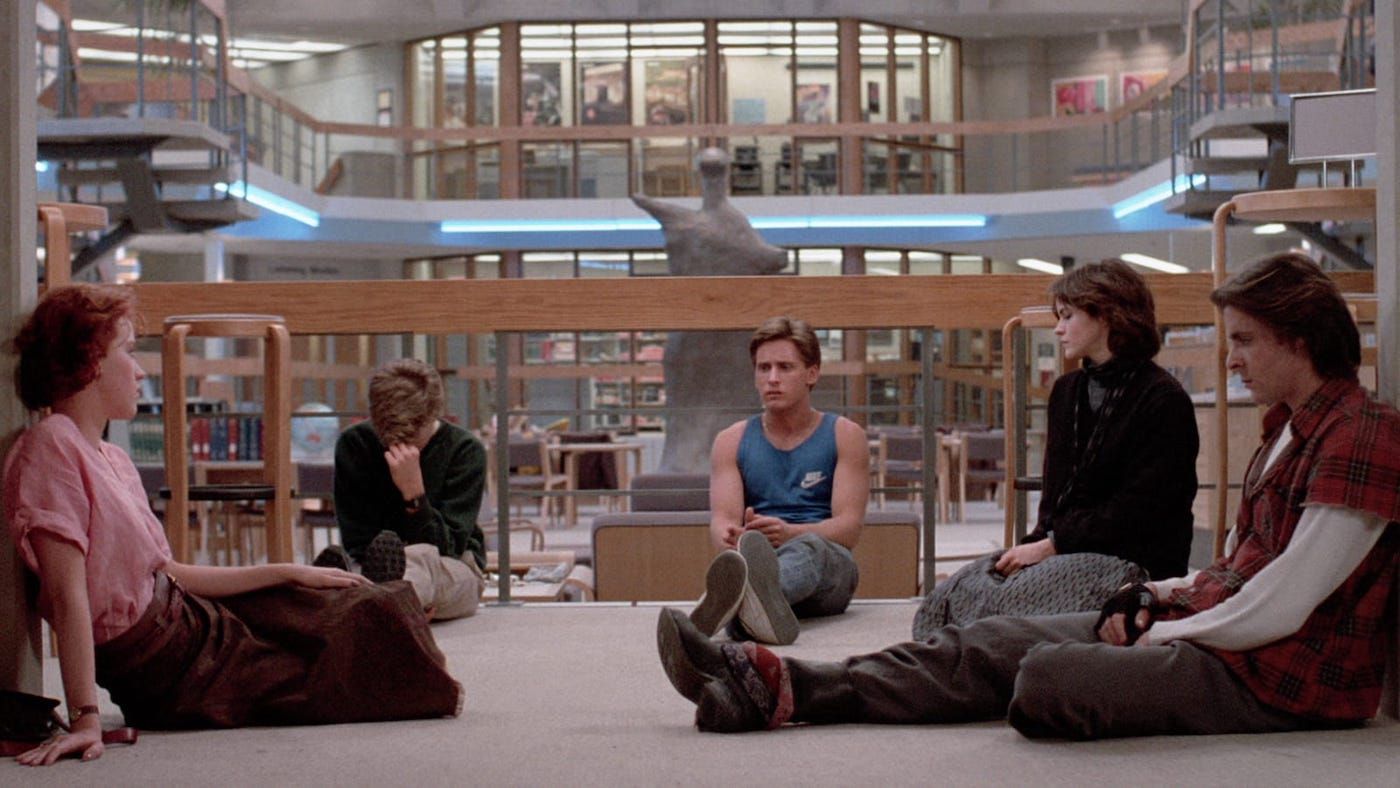
The Breakfast Club is also notable for its timeless and evocative soundtrack. The music, composed by Keith Forsey and featuring iconic songs such as “Don’t You (Forget About Me)” by Simple Minds, perfectly complements the film’s themes of teenage angst and rebellion. The music not only sets the mood but also underscores the emotional moments in the film, creating a sense of nostalgia and connection to the characters’ struggles. The soundtrack has become as iconic as the film itself, further cementing The Breakfast Club as a cultural touchstone for generations of viewers.
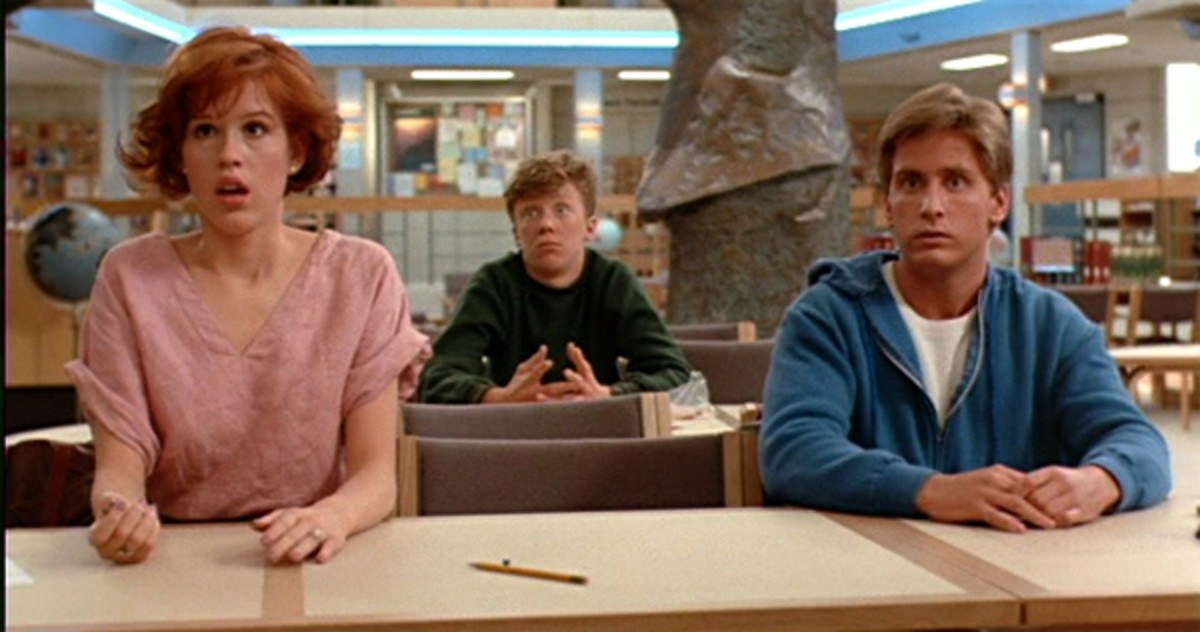
In conclusion, The Breakfast Club is a film that continues to resonate with audiences because of its honest portrayal of teenage life and the universal themes of identity, friendship, and self-acceptance. John Hughes’ masterful writing and direction, combined with a standout ensemble cast, make this film a timeless classic. By breaking down social barriers and showing the humanity behind the labels, The Breakfast Club encourages viewers to reflect on their own experiences of growing up and the importance of empathy and understanding. It remains a poignant and influential film that speaks to the complexities of adolescence and the power of personal connection.




